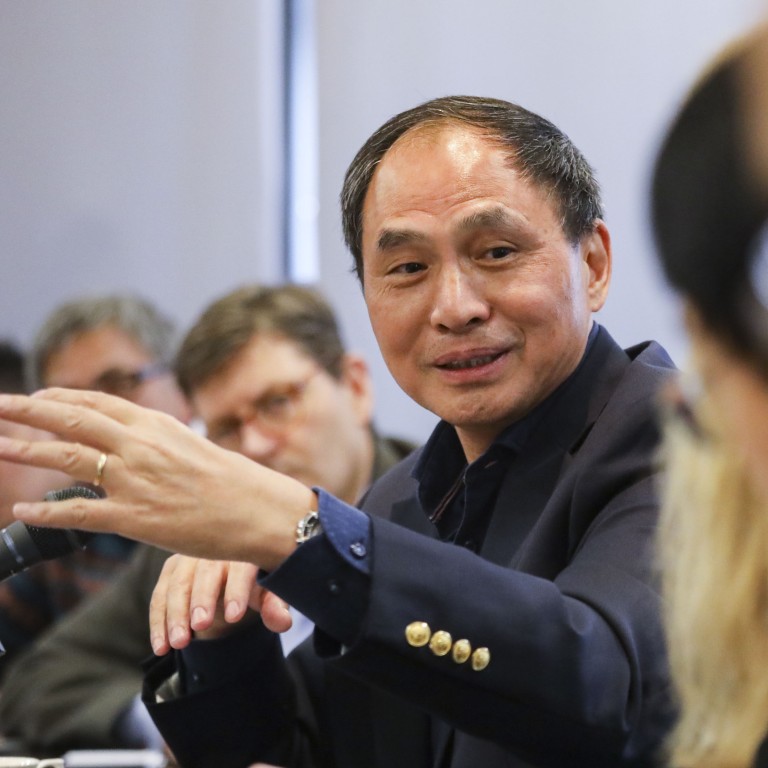
China needs to cultivate a more open, rule-based domestic market and expand its middle class to retain its shine to foreign investors and counter external headwinds as the world’s supply chains are realigned, according to a prominent political economist.
Zheng Yongnian, an adviser to Beijing’s policymakers, on Saturday published his views about how China should navigate through the global economic downturn by means of a more liberalised market.
The post was widely shared on the dominant social media platform, WeChat, after being uploaded by the official account of a much smaller and more exclusive social-networking platform for leading Chinese entrepreneurs, known as Zhenghe Island.
“Now that international demand is weakening, China’s top priority is to foster a stronger domestic market,” said Zheng, who is president of the Institute for International Affairs, Qianhai – a think tank based in Shenzhen, just across the border from Hong Kong.
Countering what has been an unprecedented stretch of mounting external challenges will require China to build a consumer-based society, by expanding the proportion of its less than 30 per cent middle class to half or even 70 per cent of the population, Zheng foresees.
If China’s middle-class population swells to between 700 million and 800 million by 2035 – from the current 400 million – it would create a lasting appeal to overseas investors, he said.
He also called on Beijing to accelerate progress in cultivating a rules-based unified domestic market to break down market barriers and put an end to the inconsistent and unpredictable regulation changes that foreign firms often cite as a detriment to doing business in China.
“The lack of consistent rules in the country reflects the absence of a unified market, which results in China’s market being big but not strong enough,” he contended. “The key lies in a shared set of rules, regulation, standardisation and management.”
China first proposed the idea of a unified domestic market in 2013 before Beijing released guidelines on accelerating its establishment in April 2022, but Zheng has raised concerns about implementing the plans at local levels, as well as about a lack of rule compliance among some Chinese enterprises.
“This lack of consistency in rules even affects deals between Chinese companies – some local private firms prefer to do business with foreign companies, as business with Chinese ones is sometimes not bound by the rules, which leads to higher costs,” Zheng added.
Top leaders, including President Xi Jinping, have reiterated that China will become more aligned with international rules and standards while continuing to open up market access to foreign investors.
Zheng said Beijing should strive to open up while fostering domestic market.
“As long as China continues to embrace opening up, and is on the way to becoming the world’s largest consumer market with a rapidly expanding middle class, US investors will not abandon the Chinese market,” Zheng added.
He also said there is room for China to unveil more detailed and tailor-made measures that cater to foreign investors from different sectors, to meet demand and retain the nation’s market allure.
It can seek to attract Wall Street investors with cooperation potential in the finance and tech realms while also luring more investors from Europe and Japan by further opening up the manufacturing sector.
“We are undergoing major changes unseen in a century, which further demands that we open up, be inclusive and stick to the facts,” Zheng said.
News Related